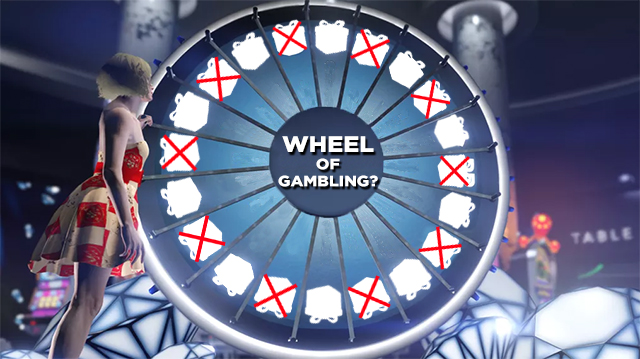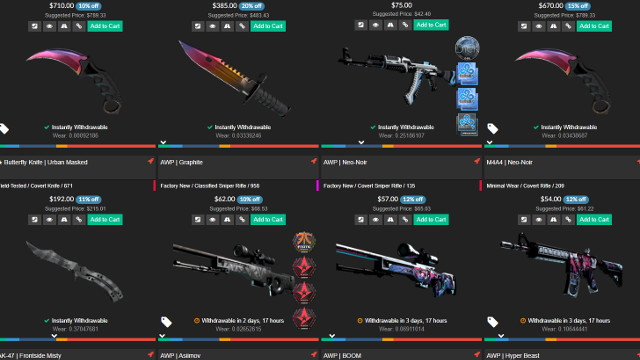Loot boxes have been quite the hot button issue over the past few years. Some decry that they are gambling, while other say they are merely “surprise mechanics.” Given how they are usually bought using real money and yield a random reward, why aren’t loot boxes considered gambling? One might think that spending real-world money for a randomized set of goods is a pretty straightforward indicator that they’re just the same as gambling. Like most things in real life, the problem with loot boxes is that they’re a complex issue with varying definitions. And that confusion is what’s been causing a clash between governments, the public, and gaming publishers.
Why aren’t loot boxes considered gambling? | An emerging model
One of the first things to consider for loot boxes is just how new they are and thus, hard to categorize. According to the Wikipedia page for loot boxes, the first instance of this style of microtransaction in gaming is believed to have been in Maplestory all the way back in 2004. It may be that something debuted in a game earlier, but they’ve been around for at least 15 years.
ALSO: Don’t @ Me | The Diablo 4 Real Money Auction House should make a comeback
Loot boxes also were, as a general rule, not really in mainstream gaming until the early 2010s. They didn’t become as widespread as they are on PC and consoles until the last few years, either. People can’t know about a problem if they don’t know it exists. After a solid decade or so, more and more games started integrating loot boxes into the gameplay experience and that’s when the real trouble began.
As fast as technology is moving, the ability of the average person to use and understand that technology is painfully slow. Loot boxes didn’t start out with the most nefarious, underhanded systems like those that can be seen in some mobile games, so it didn’t immediately catch on that they might be bad.
Why aren’t loot boxes considered gambling? | Politicians need time to learn
And politicians — those who make the rules to our society — can be particularly slow on grasping how these little boxes should be classified, regardless of if they are truly gambling or not. Any longtime fan of video games is probably very familiar with politicians not having the best understanding of video games. It happened in the ’90s, it happened in the aughts, and it’s still happening today — so much so that former Nintendo of America President Reggie Fils-Aimé felt the need to speak up about U.S. President Donald Trump’s “ill-informed” opinion about video games. “Ill-informed” is the key part here as ignorance plays a huge role.
This is not a quality unique to politicians, mind. Many (if not most) of us gamers out there can recall a time when we tried to explain something about video games to our parents. Take that same level of ignorance, and mix in the power for people to make laws, and you have a recipe for trouble. Politicians in multiple countries have been aware of loot boxes in some capacity or another for the last few years now. Some countries — most notably in Europe — have acted quickly to address the problem, but others are still debating or discussing the issue.
It takes time for someone who may have absolutely no knowledge of video games to understand loot boxes and all of the context surrounding them. However, there is one scenario where their understanding might not have any effect at all: in some countries, loot boxes really aren’t gambling.
Why aren’t loot boxes considered gambling? | Legally, it may not be gambling
But they need to match a definition of gambling whether or not they seem like gambling to one person or another. Here is Merriam Webster’s dictionary definition:
gambling
intransitive verb
1a: to play a game for money or property
1b: to bet on an uncertain outcome
2: to stake something on a contingency (see CONTINGENCY sense 1) : take a chance
Whether or not the virtual items you get are considered “property” is a whole other can of worms, but the first part of 1a is what matters with more than a few nationwide laws: playing a game for money. Back in July 2018, France ruled that loot boxes are not gambling because they don’t have any real-world value. A few months later, Ireland’s minister of state in the Department of Justice more or less said the same thing.
So, why aren’t loot boxes considered gambling? In a fair few countries, they don’t believe that the things you can win have any value. In reality, they’re just some shiny items that you can’t trade for real-world money.
Why aren’t loot boxes considered gambling? | The trouble with third parties
The handful of countries that have ruled on the matter of loot boxes went in both directions. Some countries restricted or banned the microtransaction scheme because it was akin to gambling based on how their laws on the practice are written. Other countries (like Ireland and France) did not ban them, essentially stating that you’re not winning anything of value. Unfortunately, they might have gotten this wrong — at least when it comes to two special situations.
The first reason is for games like Team Fortress 2 and Counter-Strike: Global Offensive. Strictly speaking, getting a cool item out of a loot box in either game isn’t going to put a bunch of money into your bank account. However, you can put them onto the Steam marketplace and those items could be sold for real-world money.
In the case of Steam, you don’t actually get the money. Valve does. However, you do get Steam Wallet funds which can only be used to buy games or more microtransactions on Steam, and an argument could be made that those things do have value. It’s still a murky area, and this particular aspect of the Steam marketplace will assuredly come under scrutiny in the future.
It gets much less simple and straightforward when third-party sites get involved. Strictly speaking, damn near every single video game released in the modern era forbids you from selling any in-game items or your account. Despite it being against these terms of service, you’ll have no shortage of options for exchanging your hard-earned dollars for in-game items at these third-party sites. Here’s how it typically works:
- Player A gets a cool item out of a loot box due to random chance (and good luck).
- Player A posts a listing for the item on a third-party website where people can exchange real-world money for in-game items. Sometimes, the item itself is held in escrow by the website to ensure a fair transaction.
- Player B purchases the item for real-world money.
- Player A receives the money that Player B paid for the item, minus a percentage of the sale going towards the website for facilitating the transaction.
A third-party website selling items in this fashion almost certainly violates the terms of service of most games, but does it violate gambling laws? If it does violate gambling laws, who is at fault here: the website, the game developer and publisher, or both? As far as legal matters go, this is going to be one of gaming’s trickier ones to unravel. No matter what’s decided, there’s sure to be a whole lot of people that don’t like the answer. That’s mostly because it seems like gambling even if technically doesn’t match the exact definition of it. Even if it doesn’t match the exact definition of gambling, it’s a bit subjective and that’s why it’s impossible to definitively nail down. But the gaming industry is going to have to figure it out before more and more governments come in and roll the dice on how they should or should not be classified. And that’s probably not a bet the gaming industry wants to take.











